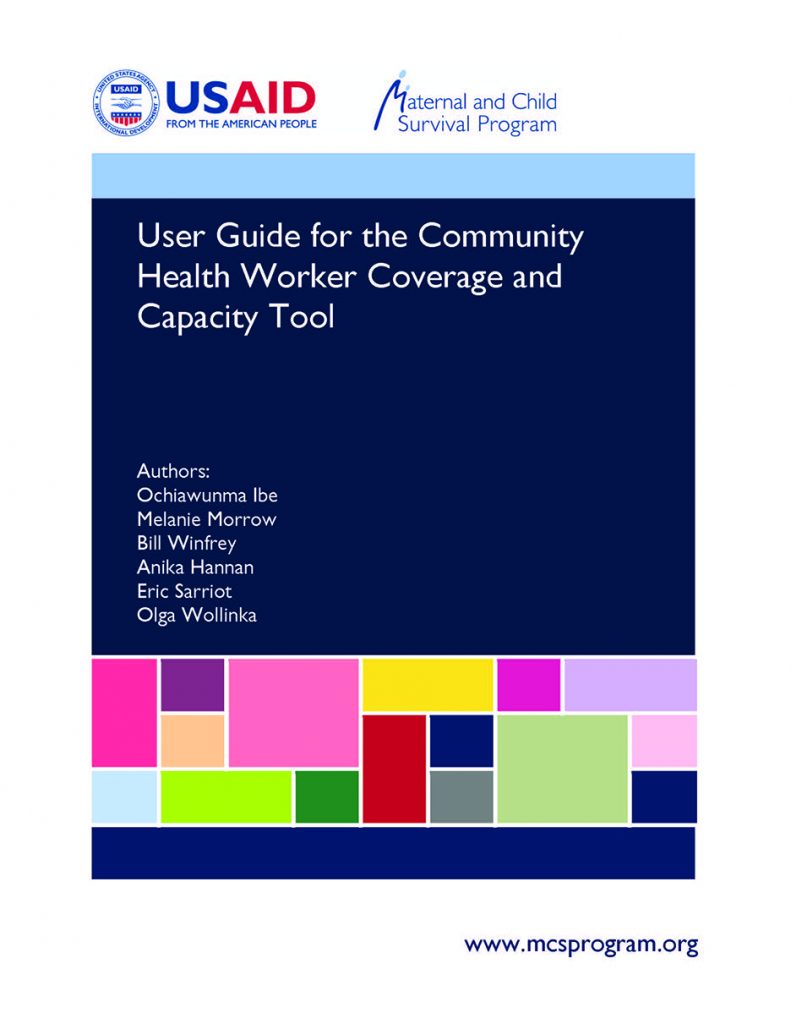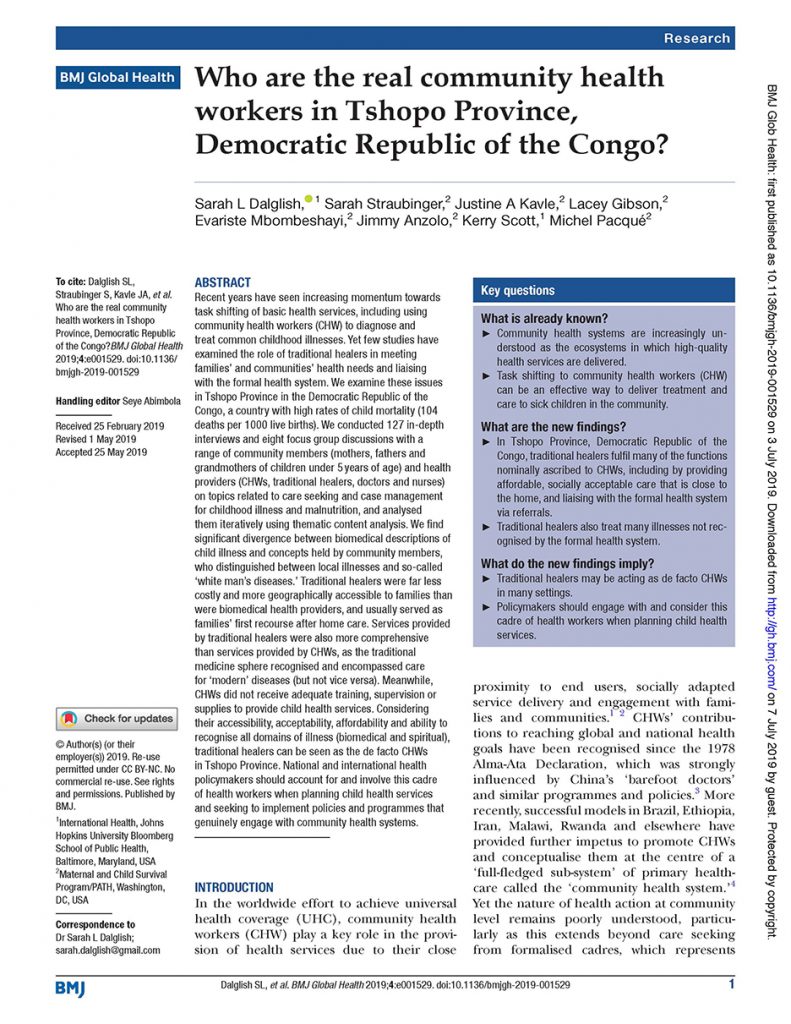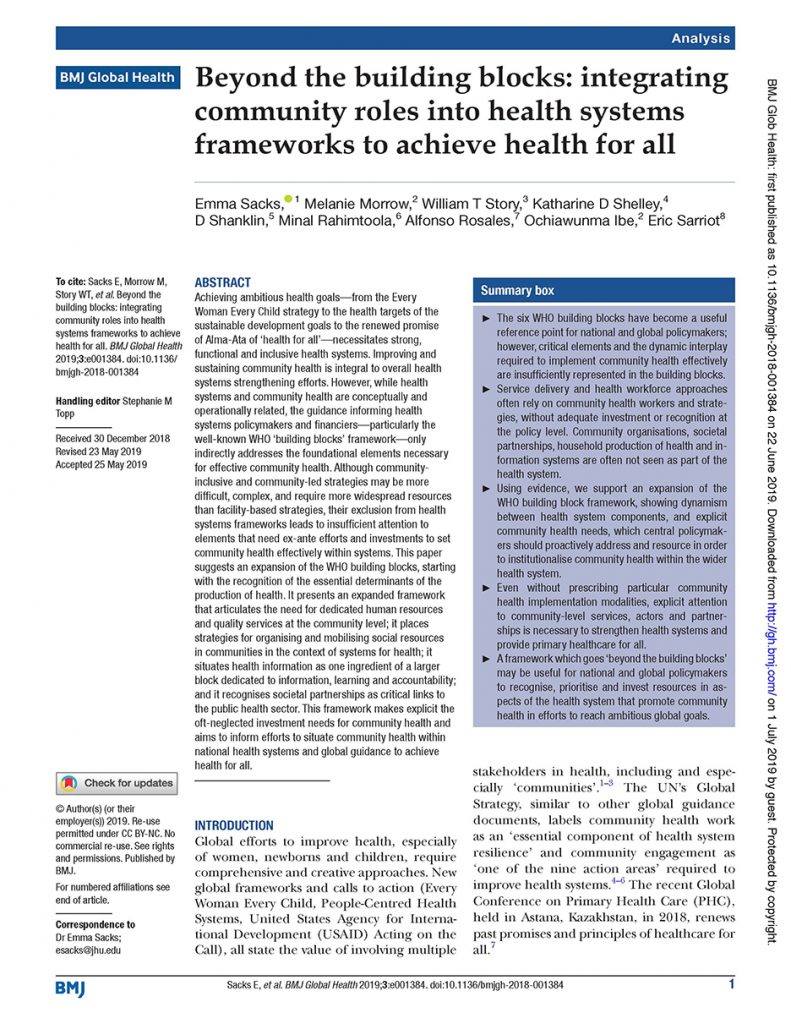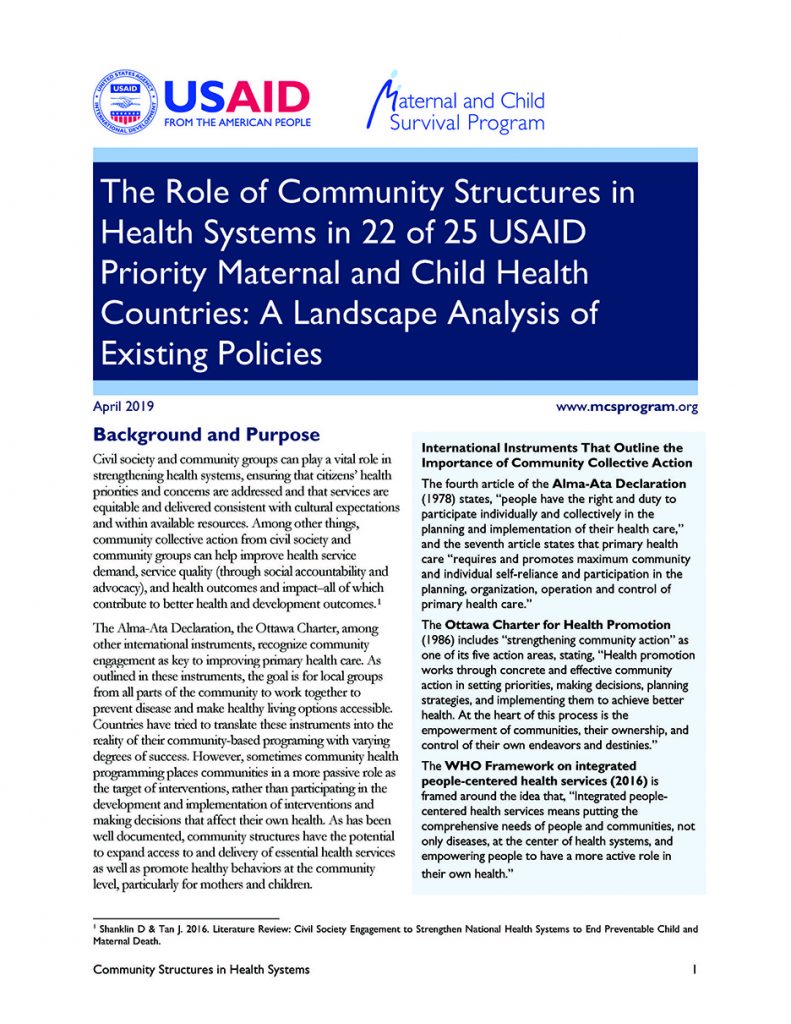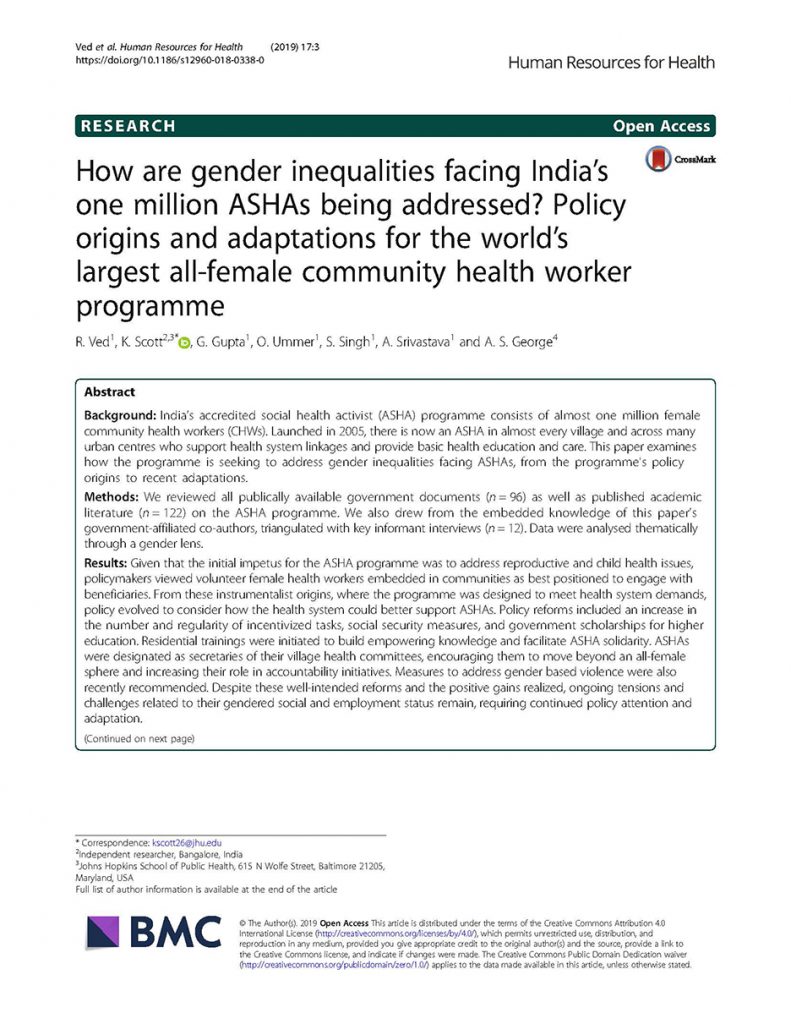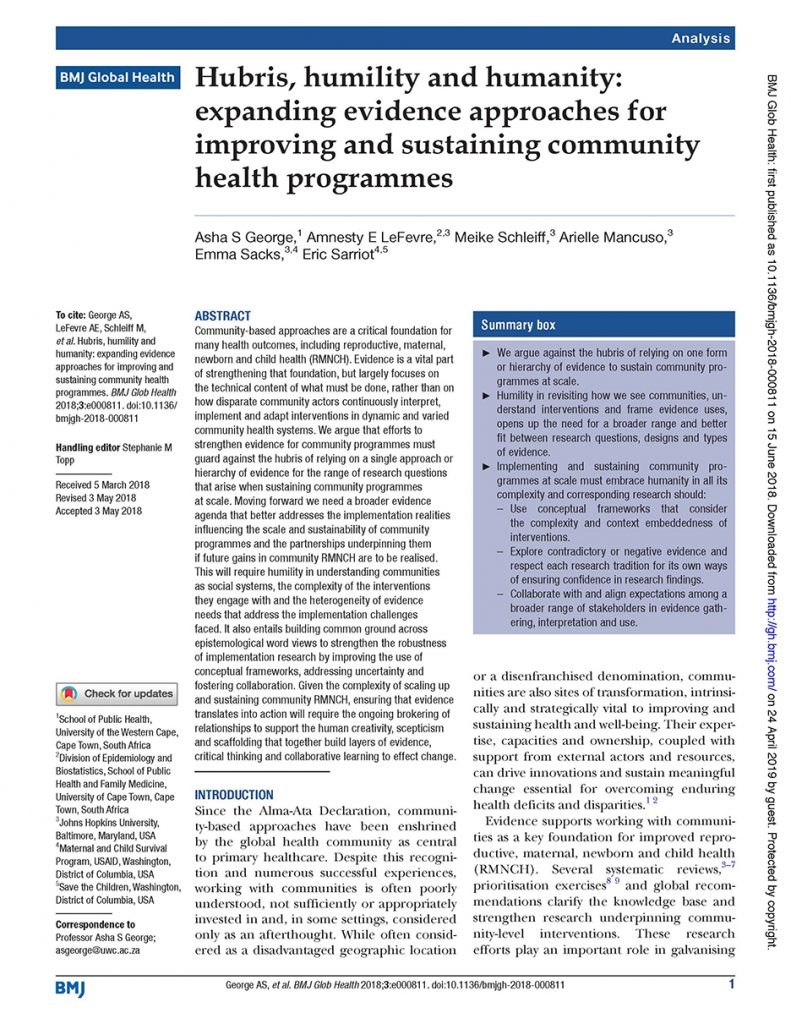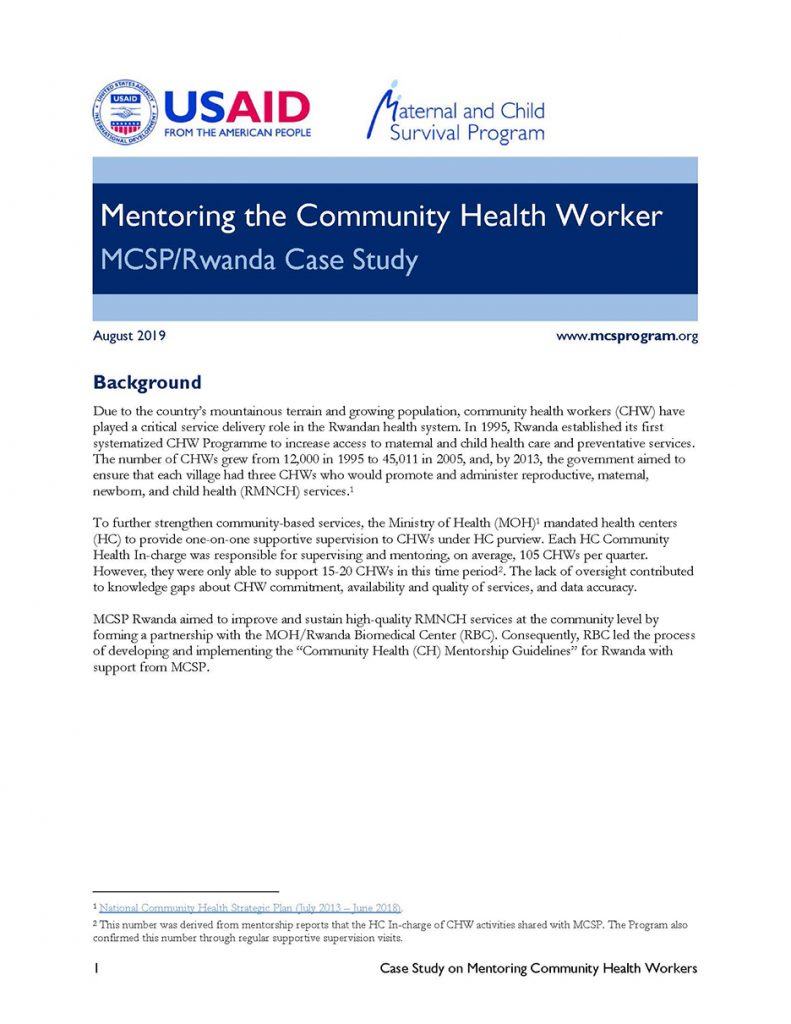
MCSP Rwanda aimed to improve and sustain high-quality RMNCH services at the community level by forming a partnership with the MOH/Rwanda Biomedical Center (RBC). Consequently, RBC led the process of developing and implementing the “Community Health Mentorship Guidelines” for Rwanda with support from MCSP. […]
Read More…
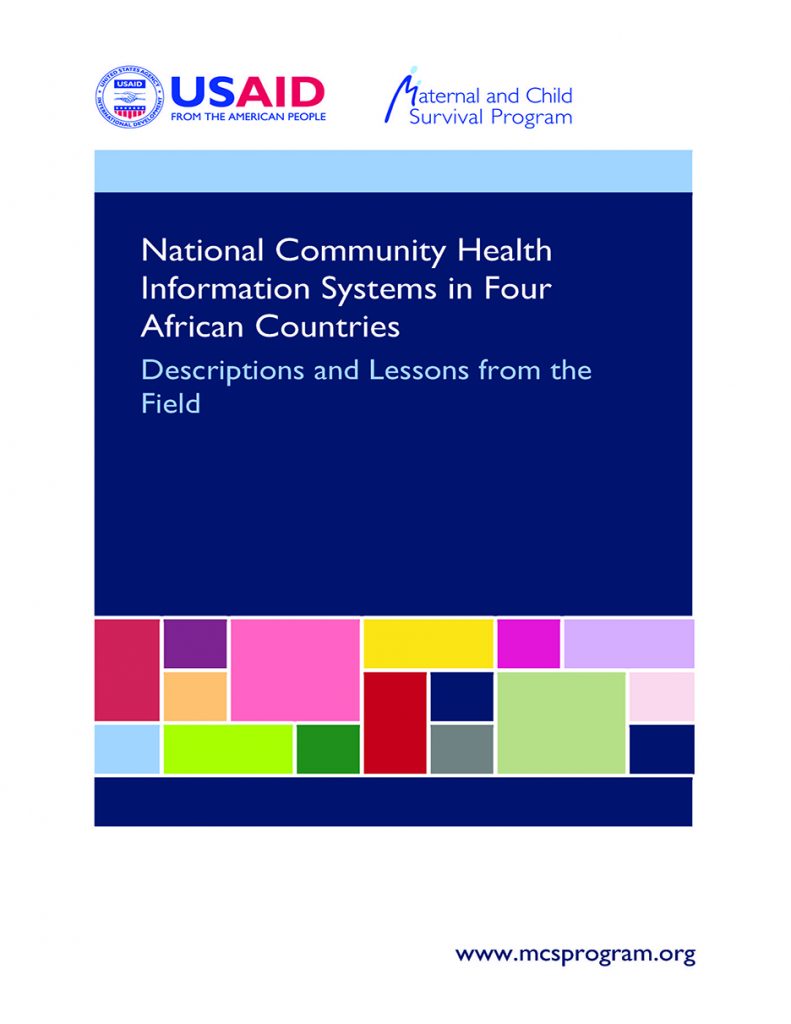
Using a case study approach, this report describes the design and operations of national Community Health Information Systems (CHIS) in four African countries with the overall goal of informing global and national-level community programming and CHIS stakeholders about CHIS design and functioning in countries and the lessons learned across them. This technical report has three […]
Read More…
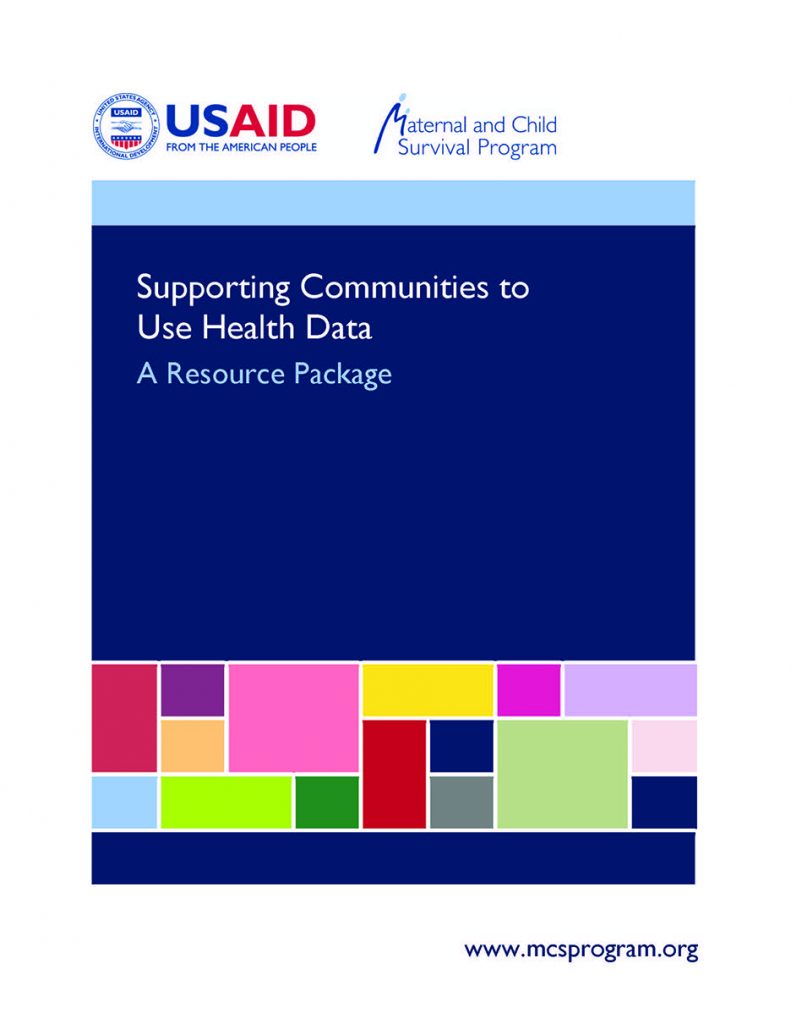
MCSP, in collaboration with the Health Data Collaborative (HDC), has led the effort to improve data collection and data use at the community level. These efforts led to the development of the new resource package on Supporting Communities to Use Health Data. This resource package walks users through how to engage data users and producers; […]
Read More…
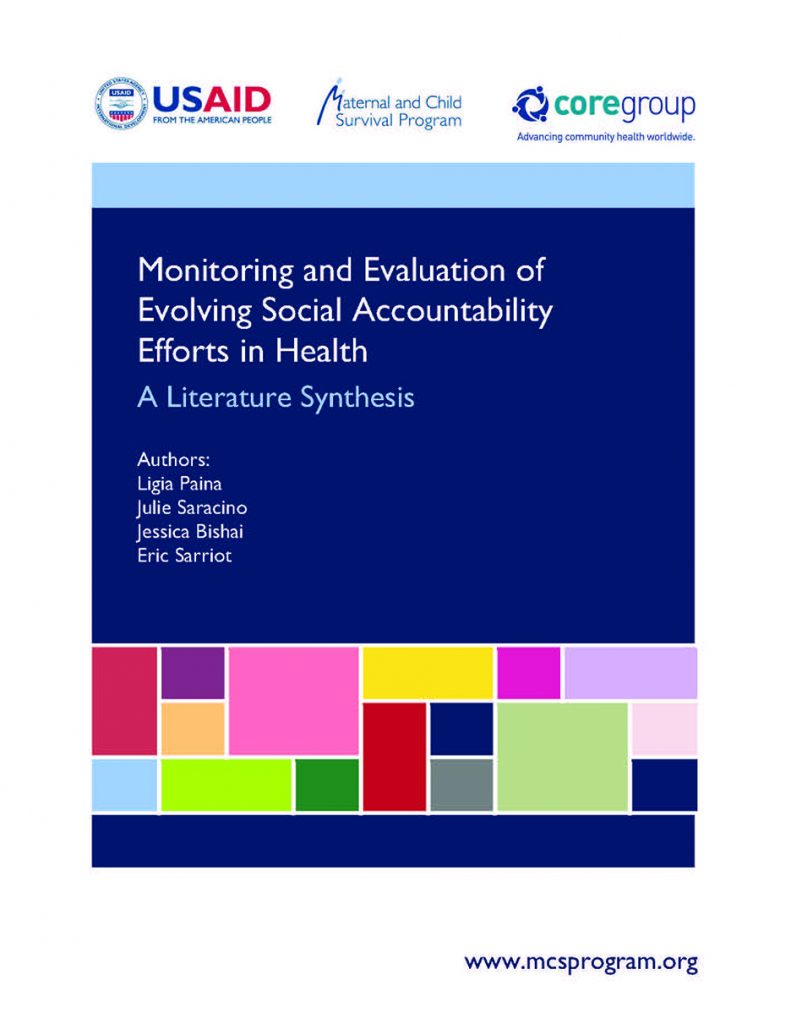
Social accountability interventions present various approaches that support citizens’ participation, direct or indirect, in dialogue with service providers and other officials with a goal of developing a collaborative relationship to improve quality of service provision. Despite recent attention on social accountability interventions, progress on updating or adapting how these interventions are monitored and evaluated has […]
Read More…
